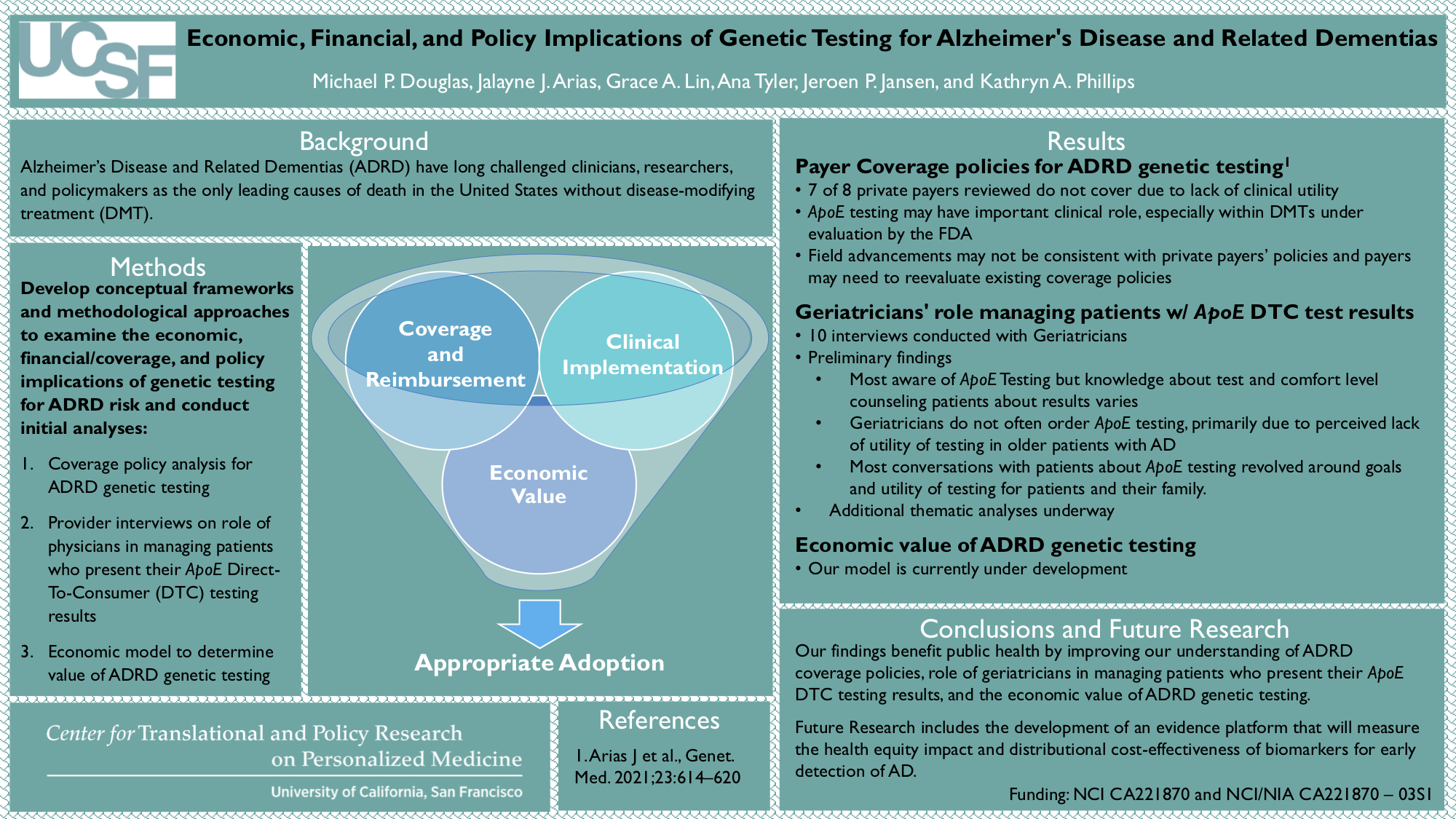 By Kathryn Phillips, PhD
By Kathryn Phillips, PhD
While the COVID-19 pandemic has impacted everyone, there has been one bright spot: Because science has the ability to rapidly sequence the genetics of the virus, pharmaceutical companies were able to develop vaccines at breathtaking speed. While the pandemic is still raging in some countries, we can see the impact vaccines have been making in the US and elsewhere.
The emergence of genomic sequencing to address pandemics is a cornerstone of precision medicine, in which genomics and other information, combined with advanced computing tools capable of processing huge amounts of data, are used to create personalized health care prevention and treatment options. Precision medicine is also used to identify the best treatments for people who already have developed disease. The near goal is the ability to identify patients at higher risk of disease or with early signs of disease, where a cure is more feasible.
New Hope for Targeted Interventions
One example are new tests for early detection of cancer called “liquid biopsies.” These tests can detect multiple types of cancer, using only one blood sample. Cancers are often diagnosed at a late stage, when they are more difficult to treat or cure. This is particularly true for cancers without established screening tools, such as pancreatic cancer. Liquid biopsies may offer the potential of early diagnosis and treatment that is less invasive and more successful.
Another example is dementia, which affects one in three seniors and is a condition that devastates patients as well as their families. Precision medicine has yielded new tests that are able to use a blood sample to measure amyloid buildup, a hallmark of Alzheimer's disease. This simple test could replace expensive imaging scans or invasive and painful lumbar punctures. Science has also identified new drugs that could be used in middle-aged adults to stave off the disease. However, treating everyone older than fifty would be costly and benefit relatively few individuals. Precision medicine tools and technology could be used to target those individuals who will truly benefit from taking these drugs.
Questions of Equity, Evidence, and Value
Precision medicine offers great opportunities while raising new questions:
- Who has access to precision medicine? Is access equitable across groups?
- How do patients, clinicians, and policymakers make decisions on when and how to adopt precision medicine?
- How do payers decide what precision medicine tests and treatments are covered? What evidence will payers need in order to make these coverage decisions?
- How can we assess the value of precision medicine by weighing the benefits relative to the costs and risks, so that we use it effectively and efficiently?
The UCSF Center for Translational and Policy Research on Personalized Medicine (TRANSPERS) was founded in 2008 to address these and similar questions. The center focuses on developing objective, impartial evidence on how to best implement precision medicine technologies effectively, efficiently, and equitably. Currently, the center is conducting studies on how emerging precision medicine tests can provide the most value to the most people – and how to best pay for them. A pending 5-year, $5M NIH grant will be funding the pursuit of specific questions, such as:
- What evidence needs to be developed so that we can assess the benefits and risks of emerging precision medicine tests?
- Should consumers be able to get testing without a doctor’s recommendation?
- How accurate do these tests need to be to avoid having too many false positive tests that lead to unnecessary and harmful testing and treatment?
- Since the Medicare program typically does not cover screening tests, or consider the costs of doing so, what are the best ways to ensure that seniors can benefit?

Kathryn A. Phillips, PhD, is Professor of Health Economics and Health Services Research in the Department of Clinical Pharmacy at UCSF. A leader in the application of new technologies to improve healthcare, she is the founding director of the UCSF Center for Translational and Policy Research on Personalized Medicine (TRANSPERS). She is a core faculty member in the UCSF Philip R. Lee Institute for Health Policy Studies and UCSF Helen Diller Family Comprehensive Cancer Center and is affiliated with UCSF's Institute for Human Genetics, Department of Epidemiology and Biostatistics, Bakar Computational Health Sciences Institute, and Global Health Sciences.
